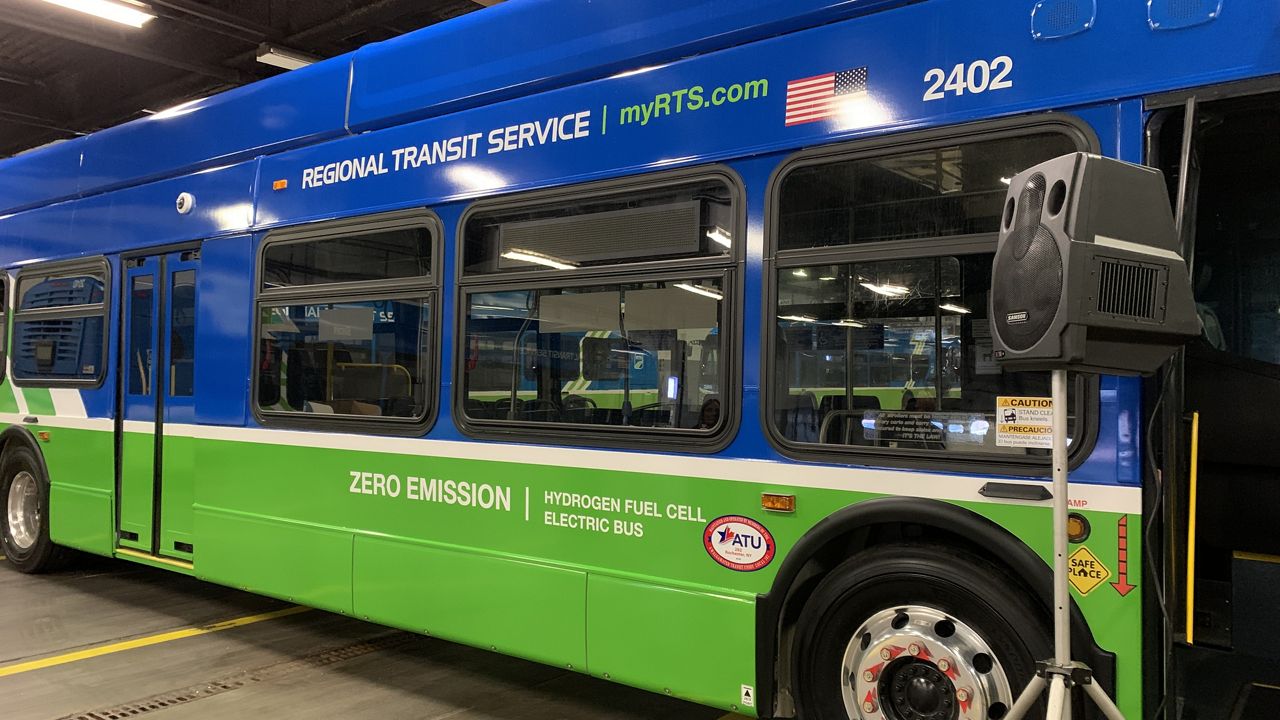Rochester Leading the Way with Hydrogen Fuel Cell Electric Buses
Key Ideas
- Rochester's Regional Transit Service introduces the first hydrogen fuel cell electric buses in New York, marking a significant step towards a zero-emission operation.
- The buses can travel up to 325 miles in cold weather and refuel in just over 10 minutes, offering a quieter, smoother, and emission-free ride for passengers.
- The initiative is part of a $285 million transition to completely zero-emission operations, supported by federal grants, aiming to build cleaner and more sustainable communities in New York state.
- New York State Department of Transportation Commissioner hails the move as historic, focusing on the importance of integrating cutting-edge technology to meet public transit needs efficiently and sustainably.
Rochester, New York, is making strides in sustainable public transportation with the introduction of two hydrogen fuel cell electric buses by Rochester's Regional Transit Service (RTS). These buses mark a significant milestone as the first of their kind in any public transit system in New York state. With a focus on achieving zero-emission operations, RTS has secured $35.1 million in federal grants to support its transition to a completely eco-friendly fleet, with an estimated total investment of $285 million. The fuel cell technology enables these buses to travel up to 325 miles even in cold weather conditions and refuel in just over 10 minutes, offering passengers a quieter and smoother ride compared to traditional diesel buses.
The addition of hydrogen fuel cell electric buses represents a step towards building cleaner and more sustainable communities in Rochester. New York State Department of Transportation Commissioner, Marie Therese Dominguez, praised the initiative as groundbreaking, highlighting the shift towards advanced technology in public transportation. The focus on sustainability and innovation aims to address the environmental impact of traditional vehicles and meet the evolving needs of commuters.
RTS emphasizes that the introduction of these buses will not only enhance the quality of public transportation but also contribute to creating healthier neighborhoods and communities. By prioritizing sustainability and resilience, Rochester is setting an example for other regions to follow, promoting a future where clean energy and eco-friendly practices are central to daily life. The commitment to integrating hydrogen fuel cell technology into public transit reflects a national model that can inspire similar initiatives across the country, driving towards a greener and more efficient transportation system.
Topics
Public Transit
Clean Energy
Infrastructure
Technology
Innovation
Sustainability
Environment
Public Transportation
Community
Latest News
